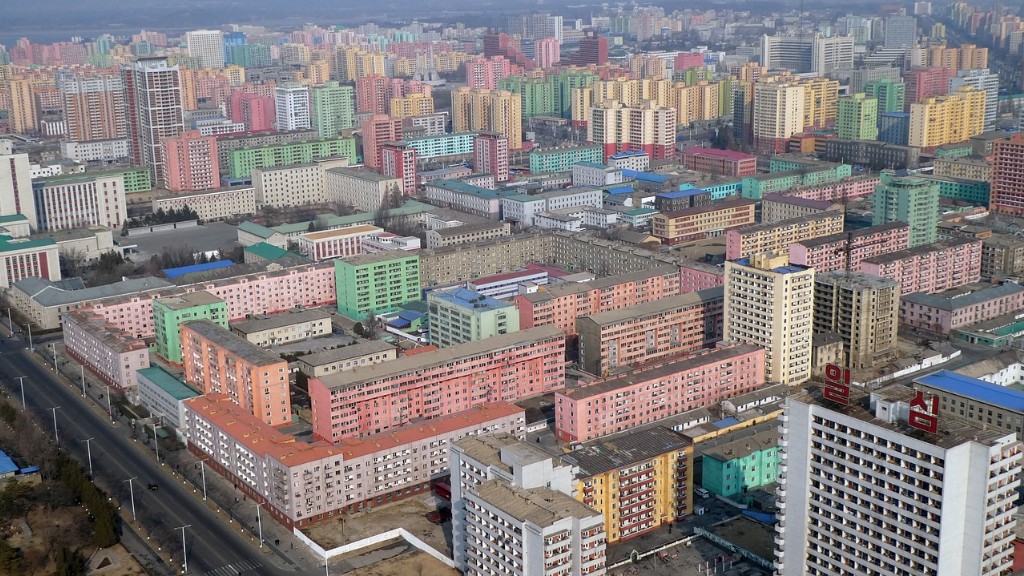Proliferation of Nuclear Weapons
For many years, North Korea has been one of the most heavily armed countries in the world. It has developed and produced a range of advanced ballistic missiles and nuclear warheads, and deployed in its armed forces as well as exported to several countries around the world. This capacity has enabled North Korea to engage in various hostile behavior towards its neighbors and other countries in the international community. One of the most significant forms of this behavior is the threat it has made against other countries, which has been the source of tension in East Asia and beyond.
The most notable example of North Korea threatening other countries is its repeated threats to the United States and its allies. North Korea has threatened to attack the United States with a nuclear attack as well as “massive retaliation” if the US were to take action against it. North Korea has also threatened to launch ballistic missiles at US territory, including Guam and Hawaii. The United States has responded by deploying additional military forces in the region, including both the Army and Navy, and implementing additional economic sanctions against the North Korean regime.
Beyond its threats to the United States, North Korea has also made threats towards its South Korean neighbor. North Korea has repeatedly threatened to launch ballistic missile strikes against South Korean cities as well as its capital, Seoul. In addition, North Korea has also threatened to use nuclear weapons against South Korea. The South Korean government has responded by increasing its defense spending and bolstering its own missile defense system.
North Korea has also engaged in hostile behavior towards Japan, another one of its neighbors. North Korea has threatened to launch both conventional and nuclear attacks against Japan in the event of a conflict. North Korea has also threatened to launch a nuclear attack on Tokyo, the capital of Japan. Japan has responded by developing its own missile defense system as well as increasing its defense spending.
China and Russia have also been subject to North Korea’s threatening behavior. North Korea has threatened to launch ballistic missiles against Chinese territory, although it has not explicitly threatend the use of nuclear weapons against China. North Korea has also suggested that it could launch nuclear attacks against Russia in the event of a conflict.
Engagement with the International Community
In recent years, there have been some attempts by the international community to engage with North Korea in order to reduce the tensions in the region. Several diplomatic initiatives have been launched, such as the six-party talks between North Korea, South Korea, the United States, Japan, China, and Russia. There have also been attempts to initiate dialogue between North Korea and other countries in order to discuss more peaceful methods of resolving outstanding disputes.
However, some experts argue that these diplomatic efforts have achieved little in terms of building a lasting peace in the region. This is due to North Korea’s steadfast refusal to renounce its nuclear weapons program and its continued threats to its neighbors and other countries. As a result, tensions in the region remain high and there is little incentive for North Korea to engage in meaningful diplomacy.
Sanctions Implemented on North Korea
The international community has also sought to pressure North Korea to end its hostile behavior through the implementation of economic sanctions. The United Nations Security Council has adopted several resolutions imposing sanctions on North Korea, in particular targeting its nuclear weapons and missile program. These sanctions include a ban on the export of certain items to North Korea and an embargo on certain economic activities, such as oil imports, in order to discourage the development of weapons of mass destruction. The intention of these sanctions is to induce North Korea to cease its threatening behavior and move towards a more peaceful stance in its relations with other countries.
However, some argue that the sanctions have not had their intended effect and have even made the situation worse. This is because the sanctions have not been able to force North Korea to change its behavior and abandon its nuclear weapons program. In addition, the sanctions have caused significant damage to North Korea’s economy, with the economy now in a state of chronic recession and widespread poverty.
U.S and North Korea Relations
The United States has had a particularly difficult relationship with North Korea for decades. While there have been several attempts to engage in negotiations and initiate dialogue, these efforts have largely been unsuccessful and tensions between the two countries have only increased. In recent years, the United States has become increasingly vocal in its criticism of North Korea and its nuclear weapons program.
The United States has also imposed its own set of economic sanctions on North Korea. This includes the complete ban on trade and investment, as well as restrictions on the ability of North Korean companies to do business in the United States. However, some experts argue that these restrictions have not been effective in pressuring North Korea to abandon its nuclear weapons program.
International Response
The international community has largely condemned North Korea’s hostile behavior and its threats to other countries. The United Nations Security Council has called on all states to take measures to reduce tensions, stabilize military forces and prevent the proliferation of weapons of mass destruction. Several countries, including the United States, China and Russia, have pledged to work together to enforce international pressure on North Korea and resolve the issue peacefully.
In addition, some countries have also said that they are willing to provide North Korea with economic assistance and other benefits if it agrees to abandon its nuclear weapons program and engage in constructive dialogue with the international community. China and Russia have been particularly vocal in this regard, suggesting that North Korea should be open to a peaceful resolution of the situation and should be willing to negotiate its differences with the other countries in the region.
Military Conflict
Despite the international condemnation, there have been some suggestions that a military conflict with North Korea is a possibility. This is due to the increased tension in the region and the risk of North Korea using its nuclear weapons against its opponents. In response, several countries have increased their military presence in the region in order to deter a potential conflict. The United States has sent additional military forces to the region, including air, naval and ground forces. Other countries such as Japan and South Korea have also increased their military presence in the region in order to respond to any potential threat from North Korea.
The possibility of a military conflict with North Korea has raised concerns among many of the countries in the region. There is a fear that such a conflict could escalate into a regional conflict, or even a global nuclear conflict. As a result, there is a general desire among the countries in the region to resolve the situation peacefully, through diplomatic means.
Political Strategy
In response to the threat posed by North Korea, several countries in the region have implemented a political strategy to reduce tensions and de-escalate the situation. This strategy involves encouraging North Korea to engage in dialogue with the international community in order to resolve the issue peacefully. It also involves the use of economic incentives and diplomatic pressure in order to persuade North Korea to abandon its nuclear weapons program and reduce its threatening behavior.
The countries in the region have also sought to cooperate with each other in order to facilitate this strategy. They have held several diplomatic meetings with North Korea, in which they have put forward joint proposals on how to resolve the issue. They have also established contact with North Korean officials in order to discuss ways to improve relations and reduce tension in the region.
Conclusion of International Involvement
Overall, North Korea’s threats to other countries have caused significant concern within the international community. In response, the international community has implemented a range of measures in order to reduce tensions in the region and encourage North Korea to abandon its nuclear weapons program. These measures include economic sanctions, diplomatic initiatives, and military presence in the region. However, despite these efforts, tensions remain high and a peaceful resolution of the conflict is yet to be achieved.


